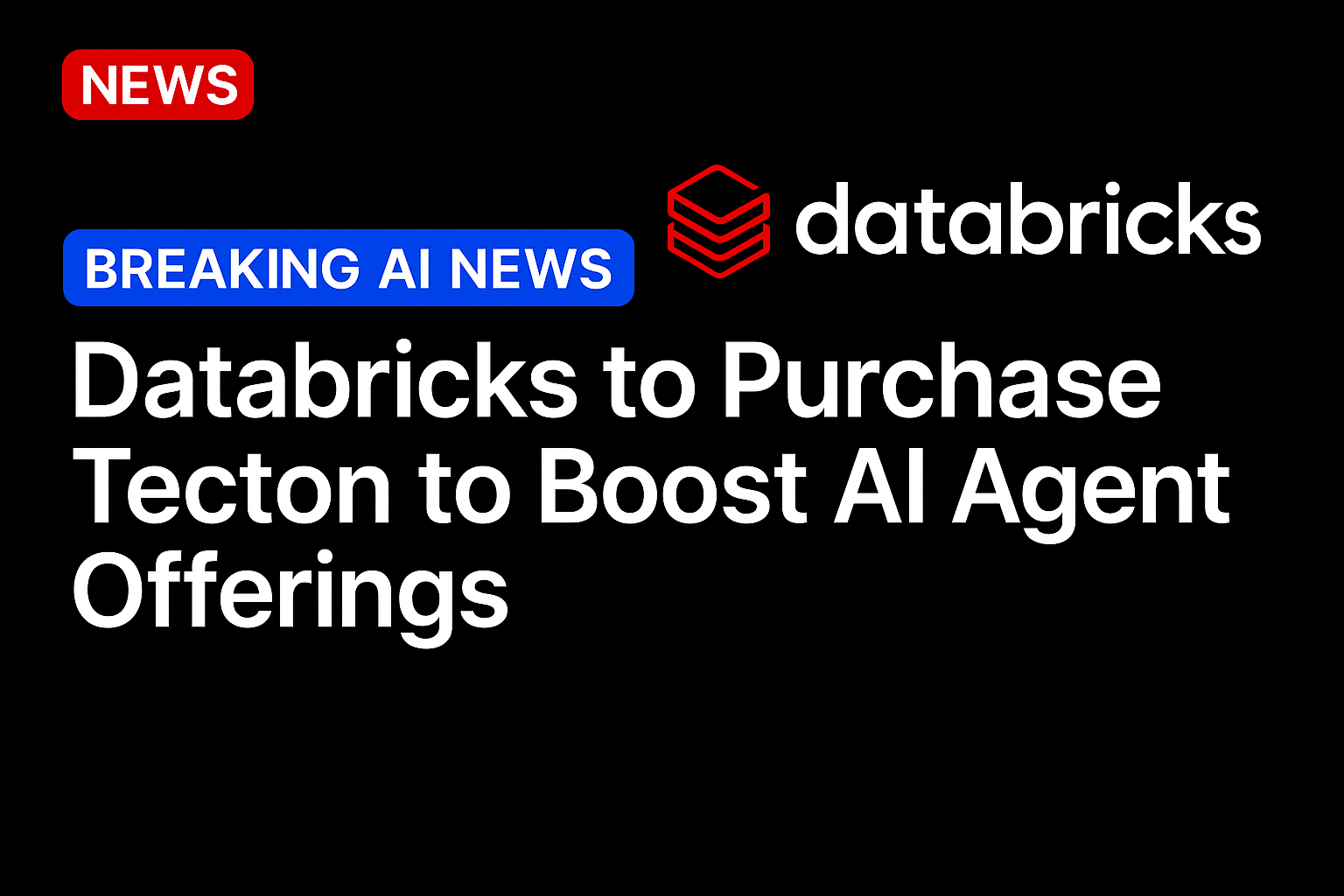Data analytics firm Databricks is acquiring machine learning startup Tecton.
The goal is to help Databricks expand its artificial intelligence (AI) agent offerings, CEO Ali Ghodsi said in an interview with Reuters on Friday (Aug. 22).
Terms of the deal were not disclosed, the report said, noting that Tecton was last valued at $900 million in 2022. The company was founded in 2020 by the creators of Uber’s AI pricing platform Michelangelo.
Ghodsi said Tecton’s technology and talent could help build out Databricks’ Agent Bricks, its flagship product for building and automating workflows with AI agents, as competition to supply AI tools to businesses heats up.
With this deal, the report said, Databricks can help reduce response times in AI applications, a key priority for customers developing interactive services.
“It’s really the real-time building block to feed real-time information into the agents,” he said, adding that speed is crucial for AI use cases such as voice interaction. “Many of the use cases are directly user-facing and human-facing, and humans hate to wait.”
The companies were already tied together, both by working together and through Databricks investing in Tecton. Ghodsi added that many of Tecton’s clients, including crypto exchange Coinbase, already use Databricks’ services, meaning the acquisition would help to bolster relationships with clients that depend on both technologies.
The deal follows a report last week that Databricks was finalizing a funding round that would help it reach a valuation of $100 billion. The money will be used to help the company attract AI talent, and postpone its plans to go public, The Wall Street Journal reported.
“The finance team tells me to not use this term, but I think Databricks has a shot to be a trillion-dollar company,” Ghodsi told the newspaper. “But we have a lot of work ahead of us to get there.”
Meanwhile, PYMNTS wrote recently about findings from the PYMNTS Intelligence report “The Agentic Trust Gap: Enterprise CFOs Push Pause on Agentic AI.”
The report spotlights that while familiarity with agentic AI is nearly universal among CFOs there is hesitation regarding its deployment. Just 15% of executives surveyed said they were even considering putting agentic AI to work, with most still in the early evaluation phase.
“This contrasts with the surging adoption of generative AI, which CFOs are increasingly using for tasks like content creation, customer service, coding and data analysis,” PYMNTS wrote. “The report shows generative AI’s deployment for product and service innovation up 21% and for spotting fraud and errors up 31% since March 2024.”
Source: https://www.pymnts.com/

